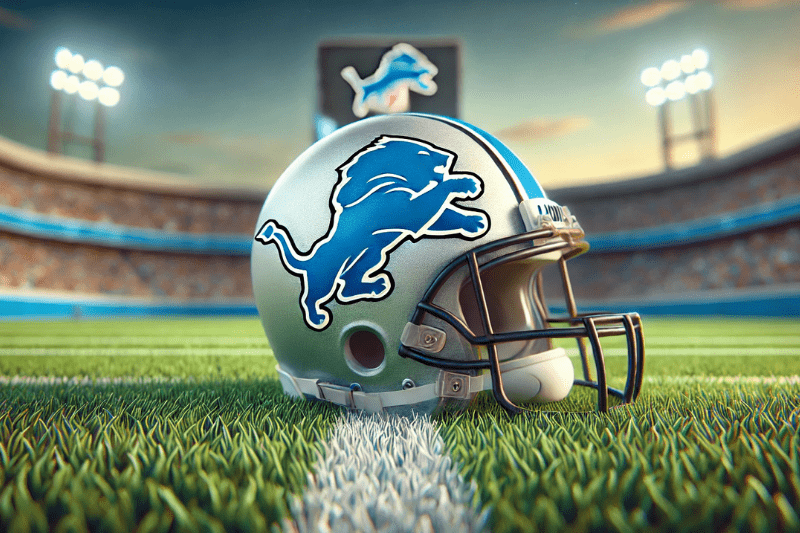I’ve spent more Sunday afternoons than I care to admit in front of a flickering television, watching the Detroit Lions find new ways to lose. It has been part of the curse of growing up in Windsor, Ont., right across the river from America’s Motor City.
Fumbles, interceptions, missed field goals — each one a tiny heartbreak. For decades, being a Lions fan was less about football and more about loyalty, a stubborn refusal to abandon a team that seemed perpetually stuck at the bottom.
“You’re a Lions fan? Sorry about your luck, buddy.” I’ve heard that countless times.
But this season, something’s changed. The Lions are 9-1, and yesterday they didn’t just win — they dismantled the Jacksonville Jaguars 52-6. At the center of this transformation is a leader who promised us grit, determination, and yes, even a bit of kneecap biting: head coach Dan Campbell.
When Campbell took the podium at his introductory press conference, he didn’t offer the usual platitudes. Instead, he spoke directly to the soul of the city his team played in.
“The city’s been down, and it found a way to get up,” he said. “It’s found a way to overcome adversity.” He wasn’t just talking about football; he was talking about the auto workers, the teachers, the small business owners who’ve weathered economic storms and come out the other side.
“We’re going to kick you in the teeth,” he declared, “and when you punch us back, we’re going to smile at you. And when you knock us down, we’re going to get up. And on the way up, we’re going to bite a kneecap off.”
It was an unusual metaphor, to say the least. And one that wouldn’t normally get a positive nod in an HR publication where more ink is usually spilled decrying workplace violence in any form. But, hey, we’re talking football here.
In that raw, unpolished speech, Campbell captured something essential about leadership — a willingness to embrace the struggle, to wear adversity as a badge of honour, and to instill that mentality in those you lead.
Authentic leadership
For HR professionals and employers, there’s a lesson here about the impact of authentic leadership. Campbell didn’t come in promising quick fixes or overnight success. He acknowledged the challenges ahead and set a tone of resilience. “Any loss that we take, we’re going to make sure we feel the full pain of it and not go numb to it,” he said. “We’re going to learn from it and not want to taste it again.”
In a business world obsessed with metrics and KPIs, it’s easy to forget the human element — the need for a shared identity and a common purpose. Campbell gave his team more than a playbook; he gave them a mentality.
Imagine bringing that kind of leadership into a corporate setting. Leaders who don’t shy away from setbacks but instead use them as fuel to drive the team forward. Leaders who understand that culture isn’t just a buzzword but the very foundation upon which success is built.
Collective effort
Campbell also emphasized the importance of collective effort. “These guys are going to fight, and they’re going to scratch and claw,” he promised. “They’re going to be something that the city’s proud of because they’re going to take on the identity of this city.”
In organizations, we often focus on individual performance, but Campbell’s approach underscores the power of unity. When a team embodies a shared ethos, the whole becomes greater than the sum of its parts. Employees aren’t just working for a paycheque; they’re contributing to a mission that resonates on a deeper level.
Moreover, Campbell’s leadership style highlights the significance of emotional investment. He didn’t insulate his players from the pain of loss. Instead, he ensured they “feel the full pain of it” to foster growth and resilience. In business, creating an environment where employees can acknowledge failures without fear encourages learning and innovation.
It’s taken the Lions generations to find the right leader — someone who doesn’t just strategize but inspires. They haven’t been this good a team since my dad was a kid in the 1950s.
This turnaround didn’t happen because of a new play or a star player; it happened because Campbell ignited a cultural shift. He understood that to change the trajectory of a team — or a company — you have to change its mindset.
Case study in transformational leadership
For HR professionals and employers, the Lions’ resurgence could be a case study in transformational leadership. It’s about hiring leaders who are not just qualified on paper but who resonate with the organization’s values and aspirations. Leaders who can galvanize a workforce, instill resilience, and create a culture where every member feels part of something larger than themselves.
As I watched the Lions take apart the Jaguars, it felt like more than just a blip in the standings; it’s the beginning of a new era. And it’s a testament to what can happen when the right leader steps in and turns long-standing frustration into fuel for success.
So, as businesses grapple with their own challenges — market uncertainties, competitive pressures, organizational inertia —perhaps it’s time to take a page out of Dan Campbell’s playbook. Embrace the struggle. Cultivate resilience. Build a team that doesn’t flinch in the face of adversity but instead stands up, time and time again, until they’re the last ones standing.
After all, if the Detroit Lions — the loveable losers from the last six decades — can rise, who’s to say what’s impossible?



